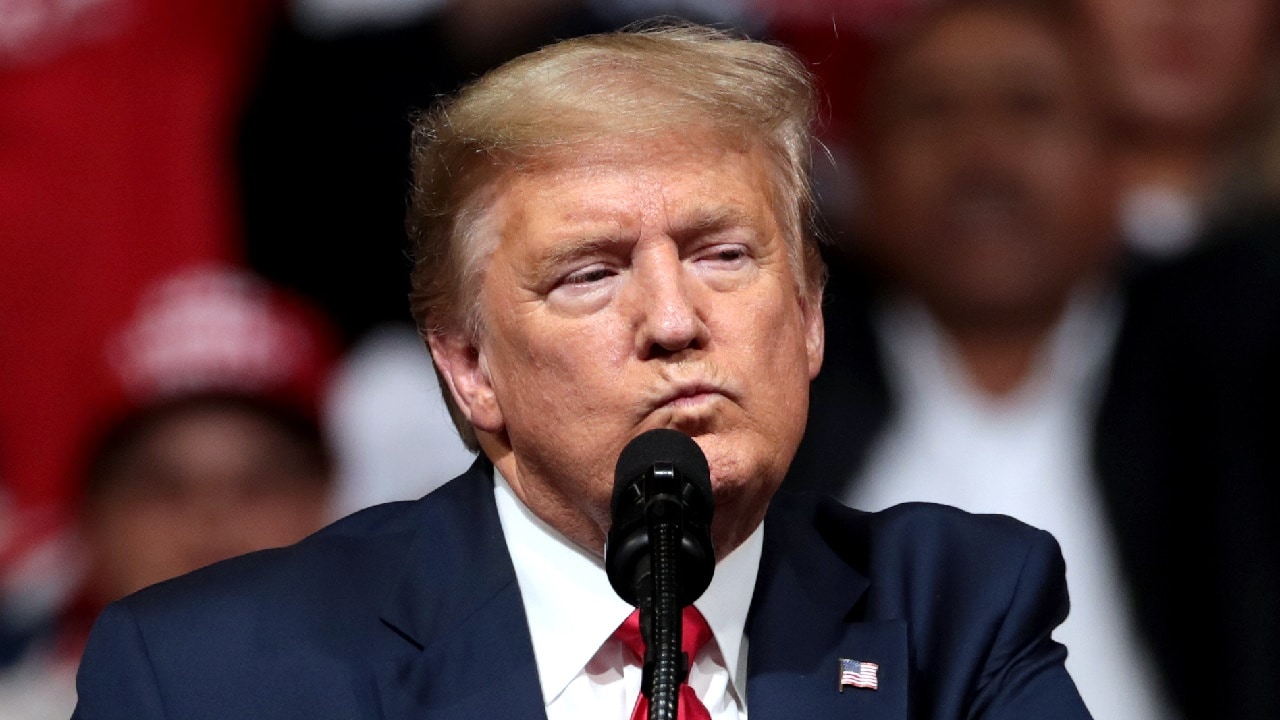Special Counsel Jack Smith’s late four-count indictment of former President Donald Trump for his involvement in stoking the January 6 Capitol riot rests on weak legal theories, critics say.
“The Defendant, DONALD J. TRUMP, was the forty-fifth President of the United States and a candidate for re-election in 2020. The Defendant lost the 2020 presidential election. 2. Despite having lost, the Defendant was determined to remain in power. So for more than two months following election day on November 3, 2020, the Defendant spread lies that there had been outcome-determinative fraud in the election and that he had actually won,” the indictment states. “These claims were false, and the Defendant knew that they were false. But the Defendant repeated and widely … disseminated them anyway—to make his knowingly false claims appear legitimate, create an intense national atmosphere of mistrust and anger, and erode public faith in the administration of the election.”
Critics Say Trump’s Actions Protected by First Amendment
Critics of the latest indictment such as former Assistant U.S. Attorney Andrew McCarthy can’t be said to be in the tank for Trump. McCarthy notably wrote in favor of Trump’s second impeachment that Trump was derelict in his duty to “preserve, protect, and defend, the states are sovereign on the matter of conducting and certifying their elections” and that he did little to stop the Capitol riot.
“Trump’s new indictment looks as suspect as it was the forecasts indicated …,” McCarthy tweeted.
The National Review editorial board similarly called Trump’s conduct on January 6 “impeachable” but came out against Smith’s legal rationale.
“In effect, Jack Smith is endeavoring to criminalize protected political speech and flimsy legal theories — when the Supreme Court has repeatedly admonished prosecutors to refrain from creative theories to stretch penal laws to reach misconduct that Congress has not made illegal,” The National Review Editorial Board writes. “Here, it is not even clear that Smith has alleged anything that the law forbids. The indictment relates in detail Trump’s deceptions, but that doesn’t mean they constitute criminal fraud.
The editorial board continued, “… [T]he Supreme Court reaffirmed just a few weeks ago, fraud in federal criminal law is a scheme to swindle victims out of money or tangible property. Mendacious rhetoric in seeking to retain political office is damnable — and, again, impeachable — but it’s not criminal fraud, although that is what Smith has charged.”
George Washington Law School Professor Jonathan Turley agreed, suggesting the charges were based on personal animus.
“The hatred for Trump is so all-encompassing that legal experts on the political left have ignored the chilling implications of this indictment. This complaint is based largely on statements that are protected under the First Amendment. It would eviscerate free speech and could allow the government to arrest those who are accused of spreading disinformation in elections,” Turley wrote. “I criticized Trump’s Jan. 6 speech while he was still giving it and wrote that his theory on the election and the certification challenge was unfounded. However, that does not make it a crime.”
Democrats Say Trump Attack on ‘Democracy’ Merits Indictment
Democrats avoided their opponents’ legal arguments and focused instead on the threat they say Trump poses to the American democratic system.
“The First Amendment protects Donald Trump if he simply makes knowingly false statements about election fraud,” Rep. Dan Goldman, D-N.Y., wrote. “The First Amendment does not protect Donald Trump if he corruptly attempts to persuade, coerce or direct others to ACT on his knowingly false beliefs.”
If his legal rationale is valid then Goldman’s Democratic colleagues should look out.
Lying is not a criminal offense, nor is seeking to influence the Electoral College vote as Sen. Marco Rubio tweeted, “When will the investigation begin on the effort by Hollywood actors to overturn the Presidential Election of 2016?” Rubio wrote, while tweeting a video with the comments by actor Martin Sheen and other Hollywood actors calling on members of the Electoral College to vote for Hillary Clinton.
Democratic members of Congress challenged Republican electors in Florida in 2001, Ohio in 2005, and again in 2017 following Trump’s election. If Trump did something criminal then logic would suggest that those Democrats who refused to accept Bush’s election or Trump’s election similarly committed crimes.
The Biden administration should be careful of bad precedents. If Trump wins, they will not have a leg to stand on if he comes after the Democratic Party and its allies with a vengeance, claiming THEY engaged in disinformation.
John Rossomando is a defense and counterterrorism analyst and served as Senior Analyst for Counterterrorism at The Investigative Project on Terrorism for eight years. His work has been featured in numerous publications such as The American Thinker, The National Interest, National Review Online, Daily Wire, Red Alert Politics, CNSNews.com, The Daily Caller, Human Events, Newsmax, The American Spectator, TownHall.com, and Crisis Magazine. He also served as senior managing editor of The Bulletin, a 100,000-circulation daily newspaper in Philadelphia, and received the Pennsylvania Associated Press Managing Editors first-place award for his reporting.

